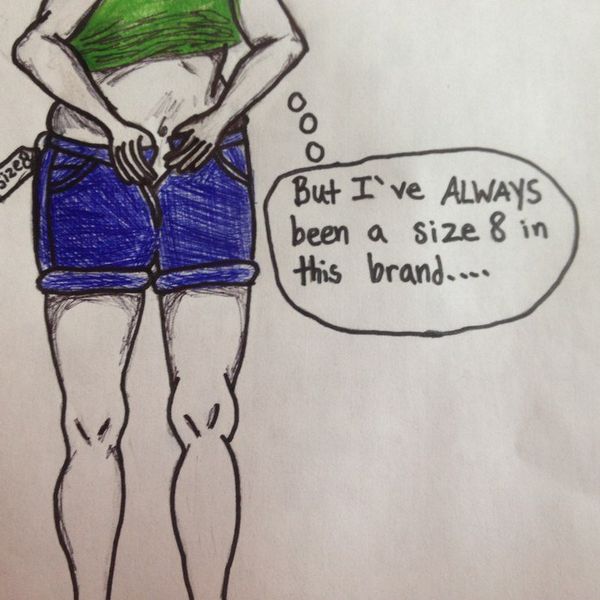As someone who has been on the internet, I've experienced the wide array of ridiculous challenges that often run rampant for maybe a month or two and disappear into the world wide void. Generally, these challenges are as harmless as they are ridiculous, the Tin Can Challenge comes to mind here. Other times, they can be extremely bad for your health and even deadly, much like The Cinnamon Challenge and the infamous Choking Game. Regardless of if they're a good idea or not, these a have a generally lighthearted basis and, aside from the choking game, don't immediately seem malicious. Honestly, many of us probably played a variation of many of the challenges in elementary school, I'm looking at you, kid who always mixed their entire lunch together on a dare.
This is not the case with all of these challenges. Without the internet, I like to think that some would not be nearly as widespread. When internet challenges are overtly dangerous, there's a backlash against them and parents warn their children not to do them or be around someone who is going to participate. Others can be just as dangerous, but because the side effects are not immediate, it's brushed off or even embraced. I'm talking about challenges, usually directed at women and young girls, that are deliberately body shaming.
As a whole, they idealize a particular body type, even ones that are very impractical and unhealthy. Instead of a lighthearted "can you do this weird thing?" they are portrayed as a measure of beauty. Not surprisingly, these challenge focus on how thin the participant is. Often times, to actually succeed at a "challenge" a girl would have to be naturally very petite or under a healthy weight. While it may seem trivial, this does wonders to promote "Pro-ana culture", environments where symptoms of eating disorders are promoted and encouraged. While all equally dangerous, I have to give them credit for creativity. These dangerous challenges can turn participants against almost any part of their body, so I've decided to run through some of the most recent and popular ones and debunk their premise.
If you haven't heard of it, I applaud you for avoiding the internet for what seemed like the entirety of 2013. The goal is simple, if you're standing with your feet together your thighs shouldn't touch. The idea is that your thigh gap, or lack their of, can be a measure of beauty. The truth? Only a select few people can safely achieve a thigh gap and even fewer of them are fit since an athlete's thighs are generally thick and muscular. If you happen to be skinny with wide hips, you'll find that you have a thigh gap. Everyone else is pretty much doomed to fail. That didn't stop the internet from running rampant with "Thigh Gap Challenges", intense exercises and diets designed to give you a coveted thigh gap.
Just when we thought the storm was over, the internet became obsessed with "The Bridge" in the summer of 2014. For much the same reasons, the bikini bridge is equally ridiculous. Some people happen to have prominent hipbones, others don't. If you do, and you happen to be thin, this challenge will work for you and everyone else will fail unless they're willing to push themselves to extreme measures.
Much to my surprise, the internet masses changed it up a little last summer. For one, The Collarbone Challenge is an actual task one would have to preform instead of a state of being. Also, this one seems much easier to cheat at. The original premise is to see how many quarters you could balance on your collarbone, with the number being a large contributing factor in how attractive you could consider yourself. Inevitably, women against the challenge caught on and began simply laying the coins flat on their chest, a challenge everyone could achieve without forcing themselves to an unhealthy weight.
The Paper Waist may be the beast we're forced to tackle this summer, and it's gaining traction in China right on schedule. To "win" the participant must hold a piece of typical printer paper up to their body. Anyone whose waist is smaller than the width of the paper succeeds. While I again have to give points for creativity, I've never looked at office supplies and thought they would be a good way to measure my body confidence, it doesn't make it any less dangerous.
No, these challenges won't kill you just because you attempted them. But they certainly aren't healthy. These challenges could push some people into an eating disorder, or into a more serious version of an illness they already have. Yet, because it's a kooky internet trend, who will think anything is wrong with it? Meanwhile, 20% of people who suffer with eating disorders will die from complications with their illness.
In challenges that provide strict standards of who can and can't be considered beautiful, no one really wins. Logically, most people know that these challenges are completely arbitrary, but pressure from social media can be a powerful thing. Hopefully, the Paper Waist Challenge will blow over and we can finally have a summer without a dangerous and ridiculous new standard of beauty. It should go without saying, but for now it's worth stating: you are far more than the gap between your thighs, the space between your skin and clothes, and the amount of your body that can hide behind a piece of paper. You are not worth less just because there is more of you, and you shouldn't let any internet troll tell you any different.
Eating Disorder are life threatening. If you or anyone you know may be suffering, don't hesitate to get help.
National Eating Disorder Helpline: 1-800-931-2237


























